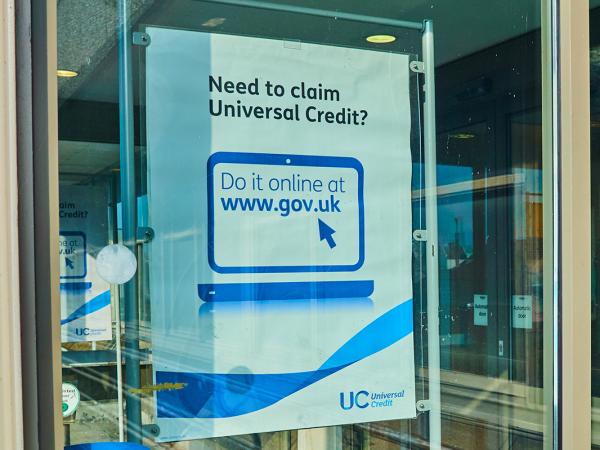Tax credits childcare support: interaction with other schemes
This page explains how the childcare element of working tax credit interacts with other childcare schemes.

Content on this page:
Interactions between childcare schemes
Help with childcare costs is a complicated area because the Government offers different schemes. Each scheme has different qualifying rules and often the amount you receive can be different. Sometimes if you claim help from one scheme, that can stop you claiming help from other schemes and so you will need to try and work out which one is better for you based on your circumstances. In other cases, the amount of support you can claim may change if you claim from more than one childcare scheme.
Tax credits and childcare vouchers
Childcare vouchers are part of Employer Supported Childcare (ESC). Your employer may offer you childcare vouchers in addition to your salary or in exchange for you giving up part of your salary (called a salary sacrifice). By taking childcare vouchers you will save on some tax and National Insurance. The tax and NIC relief associated with childcare vouchers and directly-contracted childcare was withdrawn from 4 October 2018 although certain people who signed up before that date are eligible to continue receiving relief.
There is nothing to stop you receiving tax credits and childcare vouchers at the same time. However, you can only claim help through tax credits for costs you actually incur and pay for. This means you must deduct the value of any vouchers from your average weekly childcare costs for tax credit purposes.
For example, if your childcare costs are £150 a week for one child and you get vouchers of £55 a week from your employer, you can only include £95 a week as your costs for the childcare element of tax credits.
However, if you have sacrificed some of your salary to get childcare vouchers the income figure you declare for tax credits will be lower than it was before the sacrifice (subject to the £2,500 disregard for falls in income).
In some cases the amount of tax and National Insurance you save from taking the vouchers may not make up for the amount of tax credits you lose.
Some people who qualify for tax credits are likely to be better off claiming help through the childcare element of tax credits and not taking childcare vouchers offered through a salary sacrifice. This is because initially you will lose significantly more tax credits than you will gain in tax and National Insurance savings from taking the vouchers and over the longer term you may not gain from taking the vouchers.
However there are some exceptions to the general rule above. For example, if your childcare costs are a lot higher than £175 a week for one child or £300 a week for two or more children then you can claim vouchers as well as the maximum amounts of tax credits. Similarly, if your employer offers you vouchers in addition to your salary (rather than as a salary sacrifice) you will be better off taking them.
This means it is important that you check your own position carefully and work out which is better. You should contact a welfare rights adviser at a local advice agency for further support.
Tax credits and universal credit
Both working tax credit and child tax credit are gradually being replaced by universal credit. You cannot claim both together. Universal credit is now available across the UK and HMRC state that it is no longer possible to make a brand new claim for tax credits. Eventually, most people who are still claiming tax credits will move across to universal credit or pension credit. In some cases, a change in your circumstances (for example if you change from a joint to a single household or need to claim another benefit that universal credit is replacing) may mean your current tax credit claim ends and you claim universal credit instead of tax credits. Or you may choose to claim universal credit instead. You can find out more about the introduction of universal credit in our moving to universal credit section. You can find out more about childcare support in universal credit on our universal credit and childcare pages.
Tax credits and free childcare
You cannot claim the childcare element of working tax credit to cover any free childcare. When your child starts getting free childcare, you must tell HMRC about the change in the childcare costs you pay.
Tax credits and other childcare support
You may qualify for other forms of childcare support such as the childcare grant if you study. Often the rules of these schemes say you cannot claim help if you are already claiming help through the childcare element of working tax credit. It is important that you check the rules carefully if you are considering claiming other childcare support at the same time as the childcare element of tax credits.
Tax credits and tax-free childcare
Under tax-free childcare, you must open a childcare account and for each 80p you pay in the Government will pay 20p up to a maximum of £2,000 per child, per year (£4,000 per disabled child, per year).
However, you cannot claim tax credits and tax-free childcare at the same time. If you claim tax-free childcare, your whole tax credits claim (working tax credit and child tax credit) will end automatically.
Some people will be better off claiming tax-free childcare than tax credits, while others will be better off claiming tax credits and not claiming tax-free childcare. It is important that you understand your options before claiming tax-free childcare and ending your current tax credits claim because once your tax credit claim ends, HMRC state it is not possible to claim tax credits again even if you made the wrong choice, and you may need to claim universal credit instead. Some people are better off under universal credit when compared to tax credits, others may be worse off. You can find out more about tax-free childcare and how it interacts with tax credits on our tax-free childcare page.



